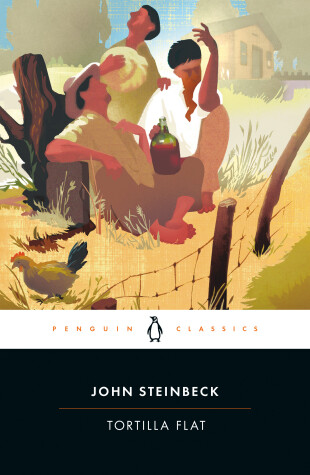"Steinbeck is an artists; and he tells the stories of these lovable thieves and adulterers with a gentle and poetic purity of heart and of prose." —New York Herald Tribune
A Penguin Classic
Adopting the structure and themes of the Arthurian legend, John Steinbeck created a “Camelot” on a shabby hillside above the town of Monterey, California, and peopled it with a colorful band of knights. At the center of the tale is Danny, whose house, like Arthur’s castle, becomes a gathering place for men looking for adventure, camaraderie, and a sense of belonging—men who fiercely resist the...Read more
"Steinbeck is an artists; and he tells the stories of these lovable thieves and adulterers with a gentle and poetic purity of heart and of prose." —New York Herald Tribune
A Penguin Classic
Adopting the structure and themes of the Arthurian legend, John Steinbeck created a “Camelot” on a shabby hillside above the town of Monterey, California, and peopled it with a colorful band of knights. At the center of the tale is Danny, whose house, like Arthur’s castle, becomes a gathering place for men looking for adventure, camaraderie, and a sense of belonging—men who fiercely resist the corrupting tide of honest toil and civil rectitude.
As Nobel Prize winner Steinbeck chronicles their deeds—their multiple lovers, their wonderful brawls, their Rabelaisian wine-drinking—he spins a tale as compelling and ultimately as touched by sorrow as the famous legends of the Round Table, which inspired him. This edition features an introduction by Thomas Fensch.
For more than seventy years, Penguin has been the leading publisher of classic literature in the English-speaking world. With more than 1,700 titles, Penguin Classics represents a global bookshelf of the best works throughout history and across genres and disciplines. Readers trust the series to provide authoritative texts enhanced by introductions and notes by distinguished scholars and contemporary authors, as well as up-to-date translations by award-winning translators.
